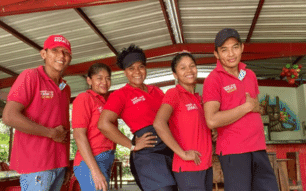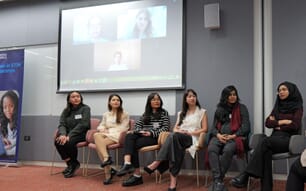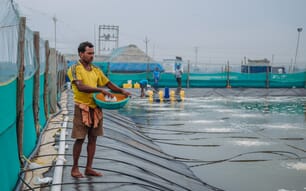
After undertaking a masters at the University of Stirling’s Institute of Aquaculture, Dr Rizgala brought her knowledge back to Libya to help develop the aquaculture sector
Tell me a bit about your background?
I was born in Libya and studied veterinary sciences at the Faculty of Veterinary Medicine at the University of Tripoli in Libya, graduating in 1999. I then went on to complete my MSc in Aquatic Veterinary Studies at the University of Stirling’s Institute of Aquaculture in 2005 and returned to Libya to join the Department of Aquaculture at the University of Tripoli’s Faculty of Agriculture in 2006. I began my PhD again at the Institute of Aquaculture in 2013, working on the health status of wild dusky grouper in Libyan waters and a description of a new pathology. I graduated in 2017 and now live and work in Libya. Since May 2022, I have been head of the Department of Aquaculture at the University of Tripoli.
How do you see the potential of the commercial aquaculture sector in Libya?
I believe that there is the potential for Libya to become one of the main aquaculture producers in the region, but only if and when the many obstacles and challenges are overcome, and the proper environment is provided for this sector to flourish. Look at the example of our neighbour Egypt, which is number three in tilapia production globally.
Currently the main farmed aquatic species in Libya are sea bass, sea bream and tilapia – however these are really at experimental stages and not significant in terms of commercial production. I see disease to be a major limiting factor in production – most fish are lost this way. This is due to the lack of diagnostic facilities, on one hand, and the fact that information about disease outbreaks comes out weeks, if not months, after the incident. There is very little one can do, apart from gathering information. The same goes for disease outbreaks in wild fish, or mass mortality events – by the time the information has reached us, there is no possibility for sampling.
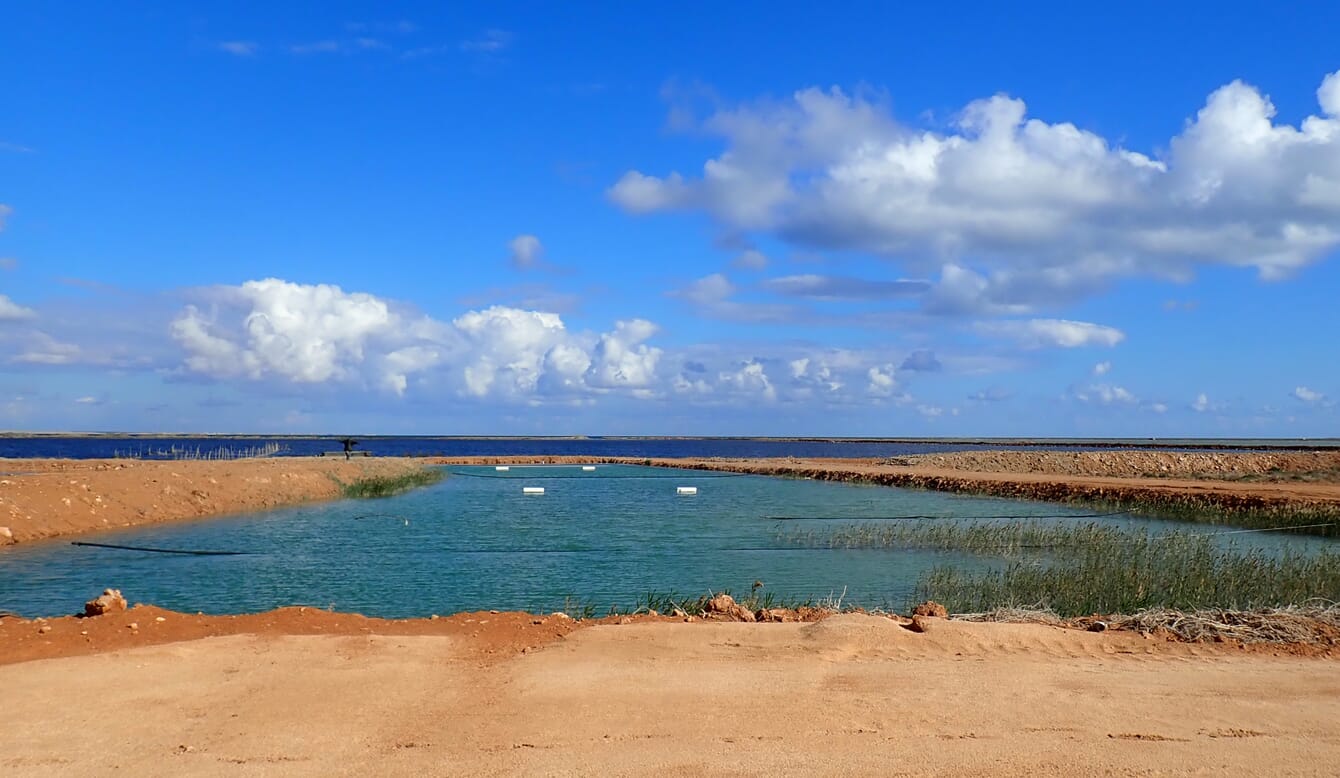
Sea bass, sea bream and tilapia are currently the main farmed species in Libya
These issues can be solved by setting up a notification, recording and response network, as well as a national fish disease diagnostic laboratory, which would allow us to make a correct diagnosis rather than a diagnosis based on simply a description or, maybe, images of the pathology, and allow us to take appropriate actions and curb their impact.
I also think that it goes without saying that, academia and the commercial sector need to work together to progress aquaculture development in Libya.
What inspired you to pursue a career in aquaculture?
It all started following my graduation in 1999, when I decided that I wanted to work in diseases affecting cetaceans but ended up working with sea turtles in Greece, Italy, Cyprus and Libya.
In 2004 I was working with Jamal El Kabir at the Marine Research Centre of Tajoura (MRCT) in Libya, and it was him who really acquainted me with the idea of pursuing a career in fish diseases. He introduced me to Carmelo Agius from Malta, who at that time was visiting the MRCT as an aquaculture consultant, and it was him who really was key in my decision to pursue a career in that field. Realising that no one in Libya was specifically studying fish diseases, he recommended that I should undertake the MSc course at the University of Stirling’s Institute of Aquaculture and bring my knowledge back to my country to help develop the aquaculture sector.
What is your greatest work-related achievement?
I would say that there are two things;
Firstly a workshop called ’Aquaculture in Libya and its future’ that I organised in May this year. Our department was founded in 1995 and this was the first time that the various sectors involved in aquaculture in Libya – academia, industry and government and, of course, the students – had come together. We discussed the main challenges facing the sector, and ways to improve and facilitate its revival.
Secondly, more generally, my active involvement in progressing the aquaculture sector in Libya – I am currently interested in developing aquaponics in the south of the country. These small units will be an integrated system combining growing tilapia with vegetables and aim to target food security and encourage the involvement and empowerment of women.
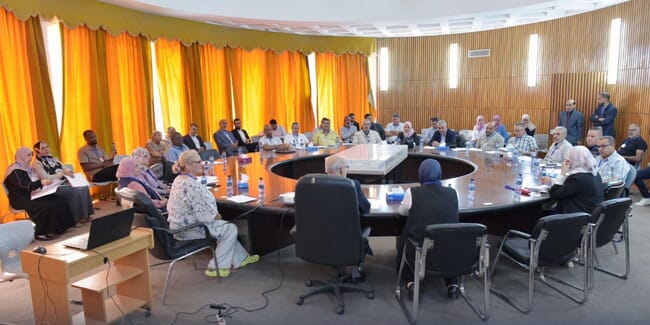
Dr Rizgalla organised the workshop that was held at the University of Tripoli's Faculty of Agriculture in May 2023 © University of Tripoli
What does your current role involve?
My main role is teaching fish diseases, including parasitology and non-infectious diseases models – we offer an undergraduate degree in aquaculture and when our students graduate, they leave with knowledge of, among other relevant topics, the main important diseases affecting both marine and freshwater fish, as well as the importance of biosecurity, diagnosis and treatment protocols.
Also we are currently working on redeveloping and updating the syllabus of the degree programme to reflect the rapidly evolving industry.
Research also plays an important and interesting part of my role – I am currently involved in research assessing marine biodiversity in Libyan waters using the combination of two methods; surveys – which include beach snorkelling and sampling, and citizen science – using data mining from social media platforms – for gathering and analysing information related to marine biodiversity and fish diseases.
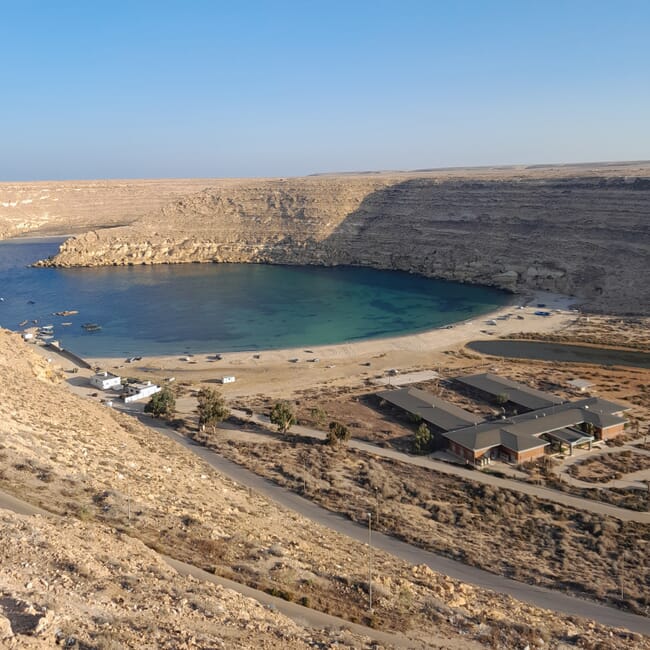
Dr Rizgalla and her colleagues are working to identify and classify invasive species – many are Lessepsian migrants, which have entered the Mediterranean via the Suez Canal, or reached Libya's shores with shipping traffic
I am especially interested in marine invasive species, such as sea slugs and nudibranchs, and am working, in collaboration with scientists from Libya and abroad, in identifying and classifying these species which have come from different regions such as the Indo-Pacific. Many of these are Lessepsian migrants, which have entered the Mediterranean via the Suez Canal, or have reached our shores with shipping traffic. Their impact on local marine biodiversity requires further research. However, so far, around 20 articles have resulted from this work.
I am also working on sea turtle strandings with NGOs, aiming to identify potential hotspots and causes for these events.
At present I am on sabbatical for nine months, which gives me the chance to focus all my time and attention on research. I am also writing on an instructive book for children to increase awareness and knowledge on nearshore marine biodiversity.
So I am keeping busy!
What have been the greatest challenges that you have had to face in your current position?
I would say that the greatest challenge that I am facing is obtaining funding – both for setting up laboratory facilities for the aquaculture students and for diagnostic purposes, as I have already mentioned, and also for developing aquaponic units in the south of Libya. These units aim to provide a sustainable, alternative and additional source of protein and vegetables, which is especially important for the families in the south of Libya suffering from the ongoing political unrest that has now entered its 12th year. We have partners and families who have shown interest in taking part in this programme but attracting funding has proven difficult. There are a number of options that we are currently exploring – from the Libyan government or from other entities abroad.
It is certainly true to say that the ongoing political unrest in my country is a major challenge, making it very difficult to gain ground in establishing a stable aquaculture sector here. This leads inevitably to difficulty in attracting investors – both nationally and from abroad – as well as attracting students to embark upon a career in aquaculture.
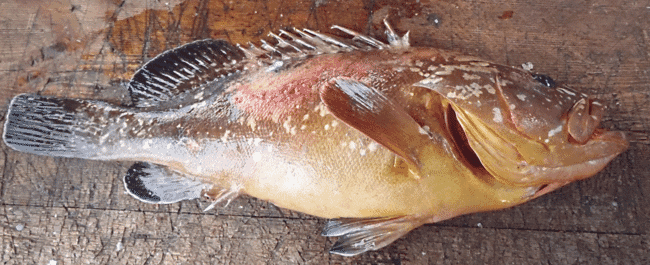
This local species is of particular interest to the aquaculture sector in Libya, but currently most fish are lost to disease due to a lack of diagnostic facilities in the country and information about disease outbreaks coming out weeks, if not months, after incidents
Have you encountered any gender-related challenges during your career and what advice would you give to those wanting to pursue a career in aquaculture?
Sure, who hasn’t experienced gender-related challenges in their career!? But it is something that can be overcome – for me it is simply a different word for competitiveness. Our department currently consists of staff of six women and seven men so I would say it is pretty evenly balanced from a gender point of view.
I think that it is important for someone who would like to pursue an aquaculture career to gain as much hands-on experience as possible in the field before embarking on our four-year degree course and to get themselves known to the local producers, to potentially be offered a job upon completion of their studies. If possible, also, to get experience in neighbouring countries, like Egypt or Tunisia, both with flourishing aquaculture industries.
I would also highly recommend that potential students come to the department on the open-door day to gather information about what the sector has to offer. We advertise these open days on our dedicated Faculty website.


